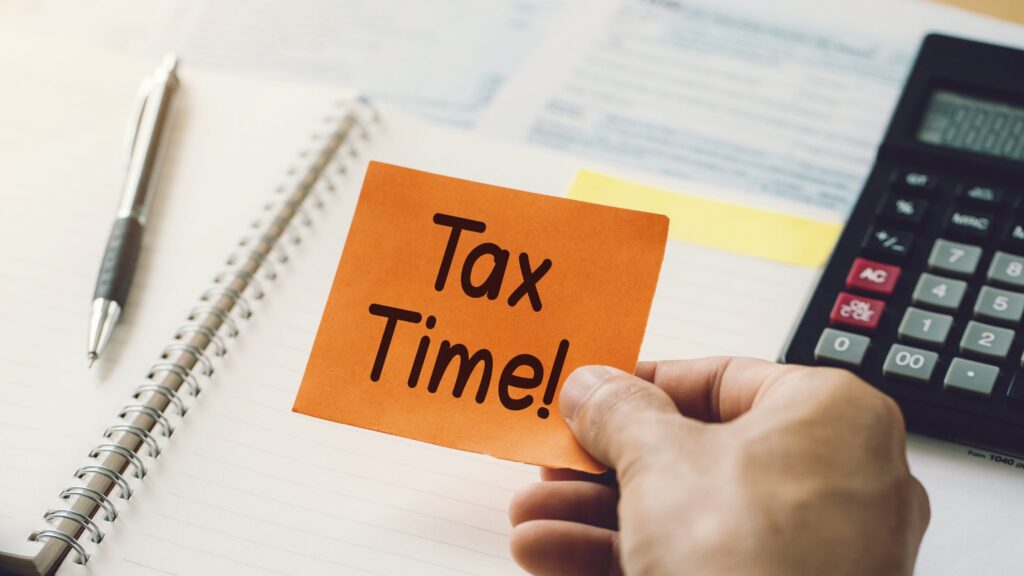Filing individual and business tax returns can often feel overwhelming. Between changing tax laws, tight deadlines, and complex deductions, even a small mistake can cost you time and money. However, with the right strategy, preparation, and professional help, tax filing becomes an opportunity to optimize savings and ensure complete compliance.
This guide explains everything you need to know—from the fundamentals to best practices—to make your tax process smoother and more rewarding.
Table of Contents
ToggleWhy Accurate Individual and Business Tax Returns Matter
Filing taxes isn’t just about meeting deadlines—it’s about securing your financial well-being. Accuracy in your returns ensures that you pay exactly what you owe, no more and no less.
- Avoid penalties and fines: Late or incorrect filings often lead to unnecessary penalties and interest charges.
- Maximize deductions: Properly structured filings help you claim every eligible deduction and credit.
- Build financial credibility: Clean records and transparent reporting enhance your reputation with lenders, investors, and tax authorities.
- Enable future planning: A clear understanding of your income and liabilities helps you plan business growth and personal financial goals effectively.
Filing individual and business tax returns correctly provides a complete picture of your finances, ensuring peace of mind and stronger financial health.

Key Differences Between Individual and Business Tax Returns
Although both filings share the same legal framework, they differ significantly in structure and requirements.
- Purpose: Individual returns report your personal income, while business returns focus on the income, expenses, and deductions of your company.
- Structure: Individuals file based on personal income sources; businesses file according to their entity type (LLC, S-Corp, or partnership).
- Complexity: Business returns involve detailed financial statements, depreciation schedules, and payroll data, while individual returns are typically simpler.
- Deductions: Business returns allow deductions for operational expenses, equipment, and employee benefits, whereas individuals claim personal and limited work-related deductions.
Understanding these differences ensures you handle each filing properly and remain compliant with all tax obligations.
Step-by-Step Process for Filing Your Tax Returns
Whether you’re an entrepreneur or a salaried professional, the process becomes much simpler when you follow a clear structure.
1. Gather All Financial Documents
Collect every document that supports your income and expenses.
For individuals, this includes W-2s, 1099s, and investment records.
For businesses, gather profit and loss statements, payroll records, invoices, and receipts.
2. Separate Business and Personal Finances
Always use different accounts for business and personal transactions. Mixing them can lead to errors and complications during filing.
3. Determine the Correct Tax Forms
Each business structure requires specific forms. For instance, corporations and partnerships file separate business returns, while sole proprietors may include business income on personal returns.
4. Track and Categorize Expenses
Accurate expense tracking reduces taxable income and simplifies bookkeeping. Include costs for utilities, travel, advertising, and professional services.
5. Apply Eligible Deductions and Credits
Stay aware of deductions available for your business operations and personal life. From education credits to startup costs, smart deduction planning lowers your overall liability.
6. File On Time or Request an Extension
Mark all deadlines well in advance. If you need more time, file for an extension to avoid penalties—but remember, payment deadlines don’t change.
7. Review Before Submission
Double-check your entries for accuracy. Confirm that figures match supporting documents and that all schedules and attachments are complete.
8. Plan for Estimated Taxes
If your income is variable or you’re self-employed, plan quarterly estimated payments to avoid penalties for underpayment.

Common Mistakes to Avoid
Even experienced taxpayers make errors. Avoid these to keep your returns clean and compliant:
- Mixing business and personal expenses
- Missing out on new tax credits or rule changes
- Failing to track cash transactions
- Underreporting income
- Neglecting to file estimated taxes
By paying attention to these details, you save yourself from unnecessary audits and financial strain.
Best Practices for Long-Term Tax Success
Adopting smart, consistent tax practices helps you stay compliant, reduce stress, and secure long-term financial stability.
- Stay informed: Tax laws change frequently, so keep up to date with new regulations.
- Keep digital records: Use accounting software to organize receipts and statements securely.
- Plan year-round: Don’t wait until tax season to prepare. Consistent monitoring leads to better savings.
- Consult a professional: Experts identify opportunities that software might miss.
- Revisit your entity type: As your business grows, a different entity structure might lower your taxes.
These practices ensure your tax journey remains smooth and stress-free every year.

Conclusion
Managing individual and business tax returns requires knowledge, organization, and proactive planning. Each decision, from how you record income to when you file, affects your bottom line. By following best practices and maintaining accuracy, you can safeguard your finances and maximize your savings.
For expert assistance and end-to-end support in preparing your taxes, Freedomfolio stands ready to help. Their experienced professionals specialize in seamless filing, tax planning, and strategic financial management designed to ensure accuracy, compliance, and peace of mind.
FAQs
1. What’s the difference between individual and business tax returns?
Individual returns report personal income and deductions, while business returns focus on company revenue, expenses, and profits based on the entity type.
2. Can I file both returns together?
No. Although some business profits may pass through to your personal return, you must file separate documents for each.
3. What happens if I miss the filing deadline?
Missing a deadline can result in late fees, penalties, or interest charges. Filing an extension on time helps you avoid those consequences.
4. When should I hire a tax professional?
Ideally, you should engage one early in the year. However, even during tax season, an expert can still optimize your filings and reduce stress.





